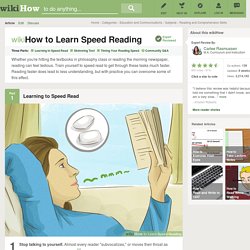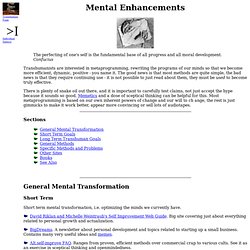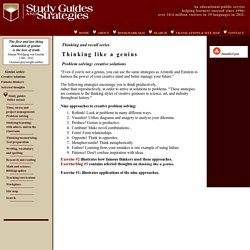

The Scale of the Universe. Top 40 Useful Sites To Learn New Skills. The web is a powerful resource that can easily help you learn new skills.

You just have to know where to look. Sure, you can use Google, Yahoo, or Bing to search for sites where you can learn new skills , but I figured I’d save you some time. Here are the top 40 sites I have personally used over the last few years when I want to learn something new. Hack a Day - Hack a Day serves up fresh hacks (short tutorials) every day from around the web and one in-depth ‘How-To hack’ guide each week.eHow - eHow is an online community dedicated to providing visitors the ability to research, share, and discuss solutions and tips for completing day-to-day tasks and projects.Wired How-To Wiki - Collaborate with Wired editors and help them build their extensive library of projects, hacks, tricks and tips. How to Learn Speed Reading: 17 steps. Steps Part 1 Learning to Speed Read <img alt="Image titled Learn Speed Reading Step 1" src=" width="728" height="546" class="whcdn" onload="WH.performance.clearMarks('image1_rendered'); WH.performance.mark('image1_rendered');">1Stop talking to yourself.

Almost every reader "subvocalizes," or moves their throat as they imagine speaking the words.[1] This may help the reader remember concepts, but it's also a major barrier to speed.[2][3] Here are a few ways to keep this habit to a minimum: Chew gum or hum while you read. This occupies muscles used to subvocalize.If you move your lips as you read, hold a finger against them. <img alt="Image titled Learn Speed Reading Step 6" src=" width="728" height="410" class="whcdn"> Speed Reading Step 6.360p.mp46Try RSVP software. Part 2 Skimming Text. Mental Enhancements. The perfecting of one's self is the fundamental base of all progress and all moral development.

Confucius Transhumanists are interested in metaprogramming, rewriting the programs of our minds so that we become more efficient, dynamic, positive - you name it. The good news is that most methods are quite simple, the bad news is that they require continuing use - it is not possible to just read about them, they must be used to become truly effective.
There is plenty of snake oil out there, and it is important to carefully test claims, not just accept the hype because it sounds so good. Memetics and a dose of sceptical thinking can be helpful for this. Sections General Mental Transformation Short Term Goals Long Term Transhuman Goals General Methods Specific Methods and Problems Other Sites Books See Also General Mental Transformation Short Term Short term mental transformation, i.e. optimizing the minds we currently have. Thinking like a genius: overview. Thinking and recall series Problem solving: creative solutions "Even if you're not a genius, you can use the same strategies as Aristotle and Einstein to harness the power of your creative mind and better manage your future.

" The following strategies encourage you to think productively, rather than reproductively, in order to arrive at solutions to problems. "These strategies are common to the thinking styles of creative geniuses in science, art, and industry throughout history. " Nine approaches to creative problem solving: Rethink! Exercise #2 illustrates how famous thinkers used these approaches. Exercise #1: illustrates applications of the nine approaches.
How scientists think: Fostering creativity in problem solving. Profound discoveries and insights on the frontiers of science do not burst out of thin air but often arise from incremental processes of weaving together analogies, images, and simulations in a constrained fashion.

In cutting-edge science, problems are often ill-defined and experimental data are limited. To develop an understanding of the system under investigation, scientists build real-world models and make predictions with them. The models are tentative at first, but over time they are revised and refined, and can lead the community to novel problem solutions. Models, thus, play a big role in the creative thinking processes of scientists. Dr. The problem is not solved by the scientist alone, but by the scientist - model combination.
Her study of the working methods of scientists helps in understanding how class and instructional laboratory settings can be improved to foster creativity, and how new teaching methods can be developed based on this understanding. Source: Wiley. HassleMe. The 99 Percent - It's not about ideas. It's about making ideas happen. Ideas, issues, knowledge, data - visualized! Kottke.org - home of fine hypertext products. TED: Ideas worth spreading. PSFK - the go-to source for new ideas and inspiration.